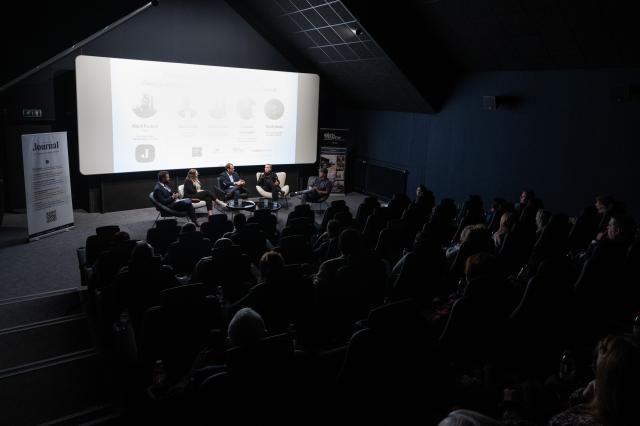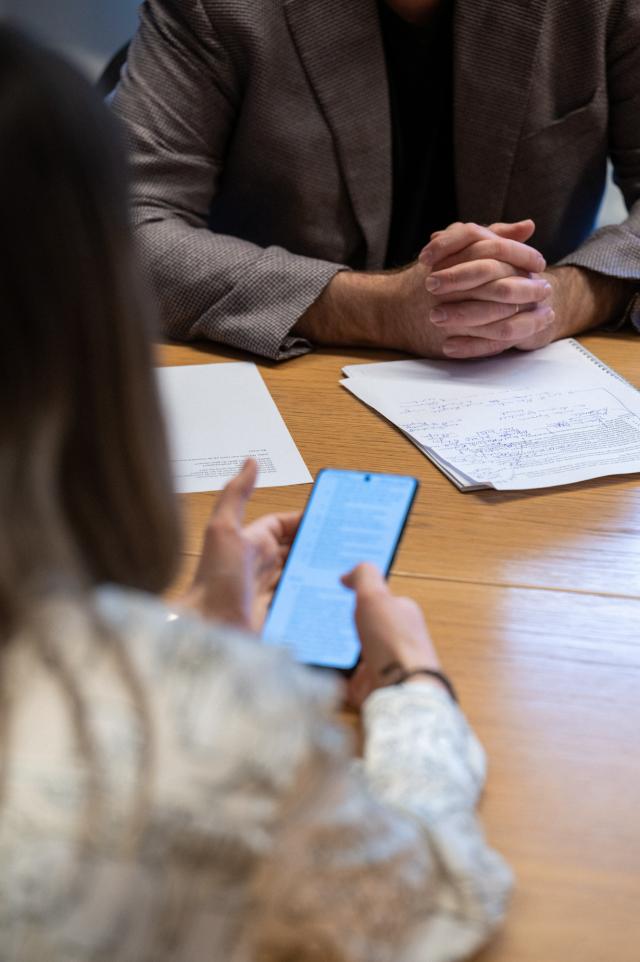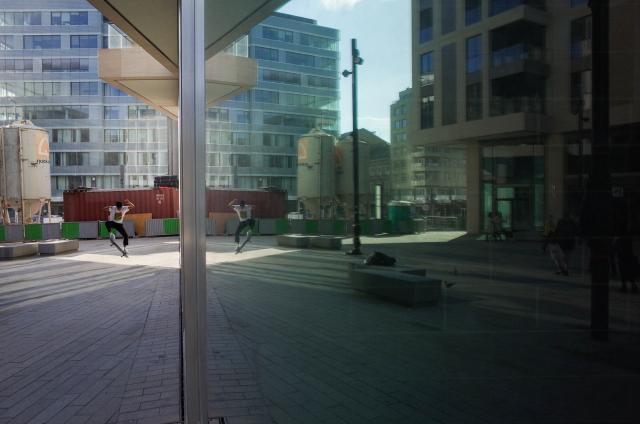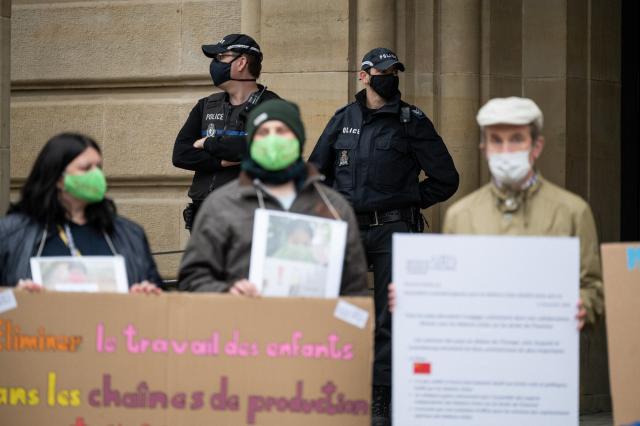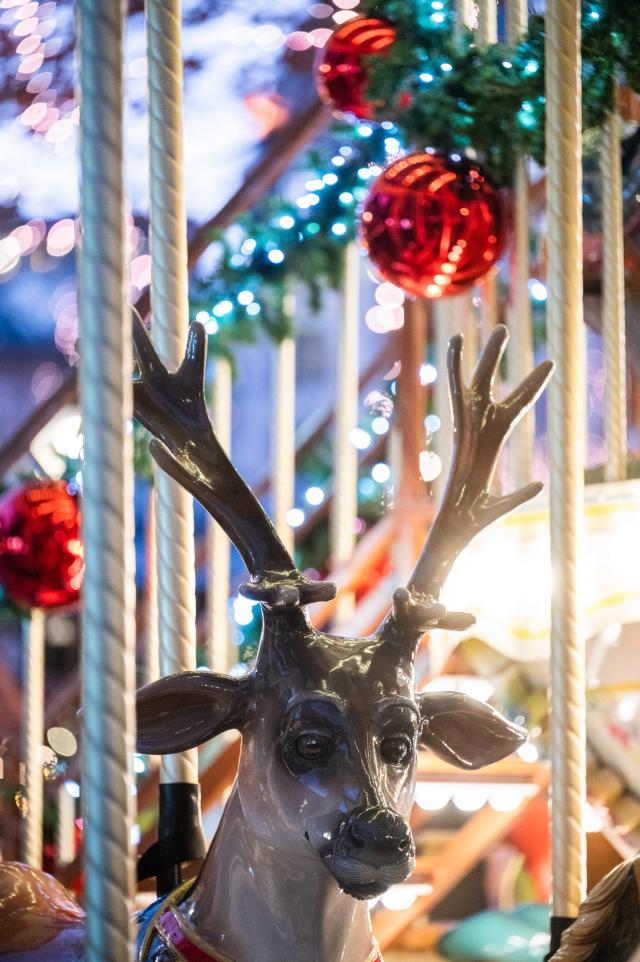A little party never killed nobody
By Christian Block, Lex Kleren, Misch Pautsch, Anouk Flesch Switch to German for original article
Listen to this article
In the presence of Grand Duke Henri, the acting Prime Minister, Minister of Communications and Media Xavier Bettel and Mayor from Grevenmacher Léon Gloden, the Lëtzebuerger Journal celebrated its 75th anniversary on the topic of media and democracy at the Kulturhuef.
Relief set in by the evening at the latest. Everything had gone according to plan. The preparatory work done in the previous weeks and months alongside the day-to-day business had paid off, and the Lëtzebuerger Journal was hopefully able to offer its guests a stimulating program – at two conferences, with an exhibition, or over a glass of crémant afterwards – and provide proof that even as a small team, it knew how to master this challenge.
Just as the media house has always done throughout its history. For decades, the small editorial team published a newspaper (almost) every day. Before a new chapter began almost three years ago with the transition to a purely digital magazine. Or in the words of Chairman of the Board Kik Schneider, who, referring to Johannes Gutenberg's invention of letterpress printing, put it in the exaggerated formulation: "Äddi a Merci." ("Goodbye and thank you.")
In the presence of Grand Duke Henri, executive Prime Minister, Minister of Communications and Media Xavier Bettel, invited guests from politics, business and society, as well as former employees, Managing Director Lynn Warken and Editor-in-Chief Melody Hansen elaborated on this process. Lynn Warken provided at least two arguments that make it unnecessary to speak of a "digital-only Journal" with the flexibility to address a broader audience in the form of articles, podcasts or videos and in several languages at the same time. Melody Hansen explained that with the transition to a digital magazine, the idea formulated back in 2012 of moving away from fast news and focusing more on background is now consistently lived by the Journal. A magazine that values diversity and inclusion.
Its origins as a daily newspaper were one reason why the Journal chose the Kulturhuef in Grevenmacher, the printing and playing card museum in the east of the country, to celebrate its 75th birthday. It was here, in the 19th century, that Joseph Esslen laid the foundation for the Obermoselzeitung, which would merge with the resistance paper D'Unio'n in 1948 to create the Lëtzebuerger Journal. The exhibition at the Printing Museum reflects the two lives of the Journal. QR codes guide Expo visitors from the posters on display to the digital articles, which have been chosen to represent the thematic focus of the anniversary, which can be outlined as media and democracy. The show is open to visitors until today (between 14:00 and 18:00).
In this context, two conferences took place at Kulturhuef on Tuesday. One was a panel discussion on language diversity in Luxembourg and the role of the media in representing society, with on the panel Cordula Schnuer, editor-in-chief of Luxembourg Times, Lisa McLean, managing director of Ara City Radio, Stéphanie Lukasik, lecturer and researcher at the University of Luxembourg, and ex-journalist and now political director of ASTI, Sérgio Ferreira. The panel covered a wide range of topics, from the demand for an access to information law, to the financial uncertainty of Radio Ara with a view to 2025, to the lack of representation of minorities in the media, to the importance of being aware of the connotation and meaning of terms such as expats, immigrants or asylum seekers. Journal-journalist Audrey Somnard led the conversation.
In the early evening, a second roundtable discussion, moderated by Misch Pautsch, was dedicated to the topic of digitalization and inclusion in the media. He was joined by Mara Kroth, co-founder of the non-profit GoldenMe, Susanna van Tonder, activist for people with disabilities, Raphaël Kies, political scientist at the University of Luxembourg, and Misch Strotz, entrepreneur and co-developer of the LetzAI platform. They touched on a plethora of topics such as the disruptive power of AI, but also its potential to make media more inclusive and accessible. On the other hand, there are also people who first have to learn how to operate a mouse. The panelists pointed out, at least implicitly, the dangers of a growing digital divide, even between generations that grew up with the technologies of their respective times at different points in time.
Didier Schneider, Director of the LGBTIQ+ Center Cigale
*in French
Nic Dicken wrote for the Journal for more than 40 years
*in Luxembourgish
Annette Welsch about an intensive time
*in Luxembourgish




















